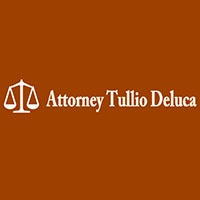Scranton Bankruptcy & Debt Lawyer, Pennsylvania
Sponsored Law Firm
-
 x
x

Click For More Info:
-
Newman Williams, P.C.
712 Monroe St P.O. Box 511 Stroudsburg, PA 18360» view mapBankruptcy & Debt A Legacy Of Solving Clients' Problems
We are proud to uphold a decades-long tradition of serving clients with courtesy, honesty and integrity. We have been here for you, and we will continue assistance into the future.
570-421-9090
Tullio DeLuca
✓ VERIFIEDBankruptcy & Debt, Accident & Injury, Divorce & Family Law, Employment, Estate
Tullio DeLuca was admitted to bar in 1990 in Pennsylvania, US District Court, Middle, Eastern and Western Districts of Pennsylvania. Attorney DeLuca r... (more)
Brett Michael Freeman
✓ VERIFIEDConsumer Protection, Consumer Bankruptcy, Litigation
Attorney Brett Freeman has devoted his career to helping those who are having financial difficulties, and to making sure that those individuals are tr... (more)
Molly Dempsey Clark
Election & Political, Family Law, Business Organization, Collection
Status: In Good Standing
David K. Brown
Estate Administration, Estate Planning, Corporate, Bankruptcy
Status: In Good Standing Licensed: 44 Years
Paul Philip Ackourey
Litigation, Workers' Compensation, Criminal, Consumer Bankruptcy, Bankruptcy & Debt
Status: In Good Standing
Carlo Sabatini
Bankruptcy, Collection, Credit & Debt, Employment
Status: In Good Standing Licensed: 25 Years
Anne Marie Howells
Divorce & Family Law, Criminal, Bankruptcy, Bankruptcy & Debt
Status: In Good Standing Licensed: 25 Years
Paul Philip Ackourey
Workers' Compensation, Juvenile Law, DUI-DWI, Bankruptcy
Status: In Good Standing
FREE CONSULTATION
CONTACT Vincent Rubino Stroudsburg, PA
Vincent Rubino Stroudsburg, PA Practice AreasExpertise
Practice AreasExpertise


